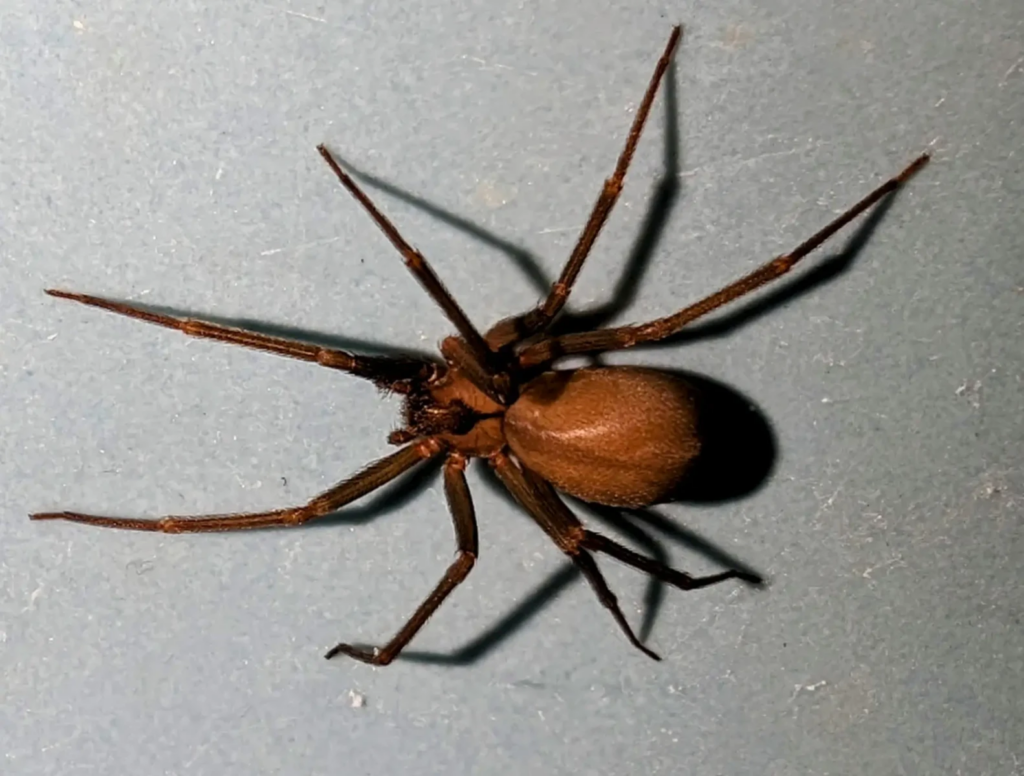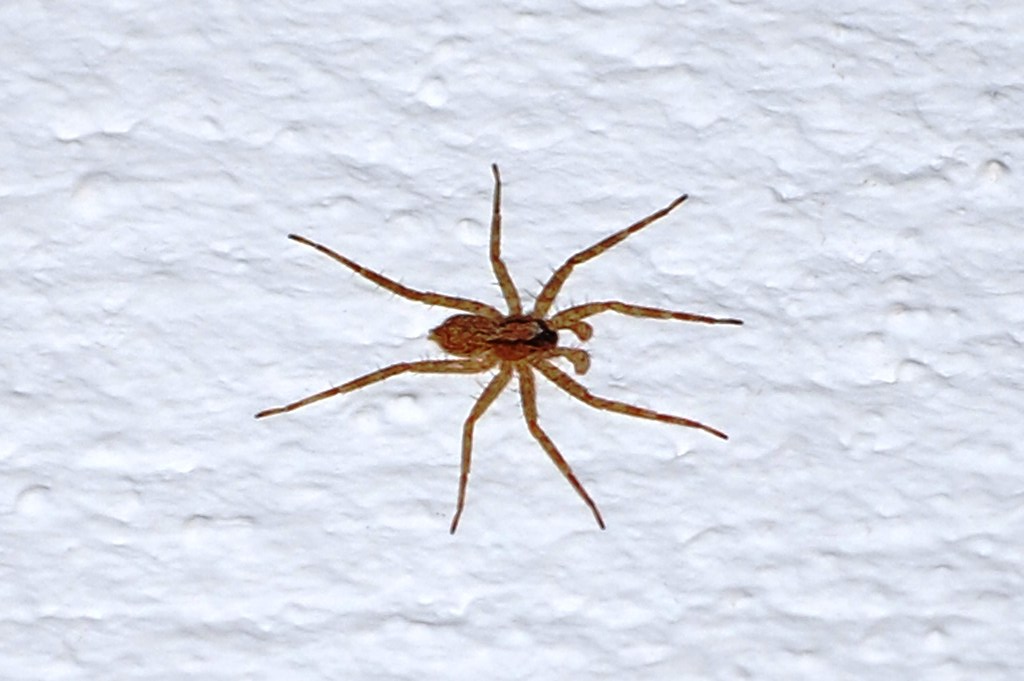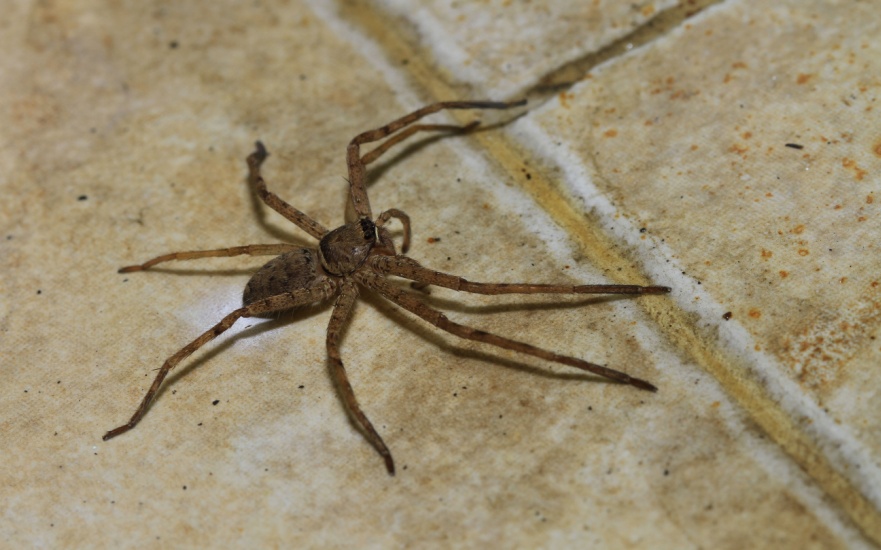Spiders in your home can be scary, even though they help the environment. It’s important to know how to get rid of them for a cozy home.
At Vinx Pest Control, we know how worried you can get about spiders. We’re here to help you get rid of them. We also offer tips on how to keep spiders away.
Key Takeaways
- Regular cleaning and decluttering can help reduce spider populations.
- Sealing entry points is key for spider prevention.
- Using natural spider repellents is a good DIY option.
- Keeping your outdoor area tidy, like trimming plants, can also help.
- If DIY methods don’t work, and you see venomous spiders, it’s time to call for help.
Understanding the World of Spiders
To manage spider problems, we must know about them. Spiders are arachnids that have been here for millions of years. They come in many kinds and live all over the world.
Spider Anatomy and Characteristics
Spiders have eight legs and a body split into two parts. They also have spinnerets to make silk for webs. Knowing about spider habitats and how they act helps us control them at home.
Why Spiders Enter Our Homes
Spiders like places with food and shelter. Our homes have lots of insects and cozy spots, making them perfect for spiders. By knowing what attracts them, we can make our homes less welcoming.
At Vinx Pest Control, we help homeowners find and fix spider problems. This way, we ensure solutions that last.
Common Spider Species in the United States
The United States has many spider types. Some are harmless, while others can be dangerous. Knowing the difference is key to keeping spiders under control.
Harmless House Spiders
Most spiders in homes are not a threat to people. They are more of a bother than a danger. Their presence often means there are more insects around.
Potentially Dangerous Spider Species
But, some spiders can be very dangerous. It’s important to know which ones to watch out for.
Black Widow Spiders
Black widow spiders have black bodies with a red mark. Their venom can cause a lot of pain and breathing problems.

Brown Recluse Spiders
Brown recluse spiders have a violin mark on their body. Their venom can cause serious skin damage if not treated right away.

Hobo Spiders
Hobo spiders are very aggressive. Their venom can cause pain, swelling, and serious skin damage.
Knowing what kind of spider you have is the first step to dealing with them. This way, you can protect your home from both harmless and dangerous spiders.

Signs of a Spider Infestation
Spiders can be unwelcome guests in our homes. It’s important to know the signs of their presence. A spider infestation can quickly get out of hand if not addressed promptly.
There are several key indicators that suggest a spider infestation is present. Understanding these signs can help homeowners take necessary actions to mitigate the issue.
Visible Web Formations
One of the most obvious signs of a spider infestation is the presence of visible webs. These can be found in corners, along walls, and in other areas that are less frequented by humans. The type and appearance of the web can sometimes indicate the species of spider.
Spider Egg Sacs
Another significant indicator is the presence of spider egg sacs. These sacs are typically spherical or oval in shape and can vary in size depending on the spider species. Finding egg sacs in your home suggests that spiders are not just present but are also reproducing.
Increased Spider Sightings
A noticeable increase in spider sightings, even during the day, can also signal an infestation. While most spiders are nocturnal, a large population can lead to more spiders being visible at any time.
By being aware of these signs, homeowners can identify a spider infestation early on. They can then take appropriate measures to control the spider population.
Health Risks Associated with Spiders
It’s important to know about spider bite health risks. Most spiders are not dangerous. But, some can bite and cause serious health problems.
Understanding Spider Bites
Not all spider bites are the same. Most spider venom is not strong enough to hurt humans. But, some spiders like the Black Widow and Brown Recluse can bite hard. For more info on spiders, like whether jumping spiders are poisonous, it’s key to know their danger.
Symptoms of Venomous Bites
Symptoms vary by spider type. You might see severe pain, swelling, redness, and blisters. You could also feel fever, chills, and nausea in bad cases.
When to Seek Medical Attention
If you think you got bitten by a venomous spider, get help fast. Watch for more pain, swelling, or trouble breathing. Tell your doctor about any other bad symptoms.
DIY Spider Prevention Methods
By using a few simple steps, you can keep spiders away from your home. These methods make your home less welcoming to spiders.
Sealing Entry Points
Spiders can fit through tiny holes. So, it’s key to seal all cracks and gaps around your home. Use caulk or weatherstripping to block gaps around windows, doors, and vents.
- Check your home’s foundation, walls, and roof for cracks or gaps.
- Use steel wool or expanding foam to block big openings.
- Seal around pipes, electrical outlets, and switches.
Reducing Clutter and Hiding Spots
Spiders like messy and quiet places. So, keeping your home tidy is important. Don’t store boxes or items in spider-prone areas.
- Regularly clean and dust storage areas.
- Keep your basement, attic, and garage organized.
- Remove items that spiders can hide in.
Regular Cleaning Practices
Cleaning often helps keep spiders away. Vacuum often, focusing on areas where spiders are common.
- Use a vacuum with a hose to get into tight spots.
- Dust regularly, focusing on corners and baseboards.
- Wipe surfaces with a damp cloth to remove webs.
Managing Outdoor Lighting
Outdoor lights attract bugs, which spiders like. So, manage your outdoor lights to keep spiders away.
- Use motion-sensitive lights or timers to cut down on lighting.
- Switch to yellow or LED lights, which bugs don’t like as much.
- Put lights away from your home’s entrance to keep bugs away.
These DIY steps can help keep spiders out of your home. You’ll feel more comfortable. Remember, natural spider repellents can also be part of your plan.
Natural Spider Repellents That Actually Work
Looking for ways to keep spiders away without chemicals? Natural spider repellents are a great choice. They are safe for your family and the planet.
Essential Oils That Repel Spiders
Some essential oils can keep spiders away. Peppermint, tea tree, and lavender oils are good choices. Just mix a few drops with water and spray it around your home.
- Peppermint oil: Spiders don’t like its strong smell.
- Tea tree oil: It fights germs and keeps spiders away.
- Lavender oil: It smells nice to us but spiders don’t like it.
Vinegar Solutions and Applications
Vinegar is also a natural spider repellent. Mix water and vinegar in a spray bottle. Spray it on spiders or where they like to hide. Vinegar’s acidity keeps spiders away.
Diatomaceous Earth and How to Use It
Diatomaceous earth is a safe, organic powder. It dries out spiders, killing them. Sprinkle it around your home’s edges and where spiders are seen. For more tips, check out our page on types of plants that keep spiders away.
Using these natural repellents can keep spiders out of your home. You won’t have to worry about harmful chemicals.
Store-Bought Spider Control Products
Store-bought spider control products come in many forms. They can help manage spider problems. Using them right is key to success.
Spider Sprays and Aerosols
Spider sprays and aerosols kill spiders on contact. They often have pyrethroids, which work well against many spiders. Always follow the instructions and be careful when using them.
Spider Traps and Glue Boards
Spider traps and glue boards catch spiders. They help lower spider numbers in a spot. Place them where spiders are most active. Check and replace them often for best results.
Residual Insecticides and Their Effectiveness
Residual insecticides keep killing spiders for a while after use. They work on spiders that come into treated areas. But, how well they work depends on the product and where it’s used.
Knowing about different spider control products helps homeowners tackle spider problems. It’s all about making smart choices.
Why Spiders Keep Coming Back: Addressing Root Causes
Understanding why spiders come back is key to controlling them. They are drawn to homes for many reasons. Knowing these reasons is important for managing spiders well.
Food Sources for Spiders
Spiders like homes because of the food they find there. Flies, mosquitoes, and ants attract spiders. These insects are drawn to food and clutter.
- Insects are drawn to food debris and clutter.
- Poor waste management can contribute to insect infestations.
- Regular cleaning and proper food storage can help reduce insect populations.
Environmental Factors
Environmental factors also attract spiders. They like certain conditions, like:
- Moisture: Spiders thrive in humid environments.
- Temperature: Moderate temperatures can attract spiders.
- Darkness: Spiders prefer dark, secluded areas.
Structural Issues in Your Home
Structural problems can also lead to spider infestations. Cracks and gaps around doors and windows let spiders in.
Knowing these causes helps homeowners prevent spider problems. It also reduces the chance of spiders coming back.
When to Call Professional Spider Control Services
DIY methods can help manage spiders. But, sometimes you need professional help. If you can’t control spiders alone, it’s time to call professionals.
Severe Infestations
A big spider problem means you need help. Too many spiders in your home is hard to handle alone. Experts have the tools and know-how to get rid of them.
- Many spider sightings in your home
- Big webs everywhere
- Spider egg sacs found
Venomous Spider Concerns
Be careful if you think you have venomous spiders. Black widows and brown recluses are dangerous. Experts can find out what kind you have and fix the problem.
Recurring Spider Problems
Keep trying DIY if you can, but if spiders keep coming back, call experts. They can find why spiders keep coming and stop them for good.
Knowing when to ask for help keeps your home safe from spiders. Professional services are a good way to solve spider problems.
Vinx Pest Control’s Spider Elimination Process
Our spider elimination process at Vinx Pest Control is designed to solve your spider problem. We know spiders can be a big nuisance. Our team is here to help you have a spider-free home.
Comprehensive Inspection and Assessment
The first step is a detailed home inspection. Our skilled technicians will check how bad the spider problem is. They will also find out what kind of spiders you have and where they live.
Customized Treatment Plans
After the inspection, we make a special plan for you. Our plans are made to get rid of spiders and fix the reasons they are there.
Eco-Friendly Spider Control Methods
We use green spider control methods at Vinx Pest Control. Our team knows the best ways to control spiders. They use safe products for your family and pets.
Follow-up Services and Guarantees
We don’t stop after the first treatment. We offer extra services to make sure spiders are gone for good. We also give guarantees, so you can trust our work.
Choosing Vinx Pest Control means you get a complete and green solution. We want you to have a spider-free home. We work hard to make that happen with our detailed and customer-focused approach.
Long-Term Spider Management Strategies
Keeping your home spider-free is not just a one-time job. It needs a long-term plan. You must understand spiders’ habits and stop them from coming in.
Think about seasons, landscaping, and keeping up with maintenance. These are key to keeping spiders away.
Seasonal Prevention Tips
Spiders face different challenges in each season. For example, in fall, they look for warm places inside. To stop them:
- Seal any cracks and crevices around windows and doors.
- Keep your home clean, including regular vacuuming and dusting.
- Reduce clutter, which can attract spiders.
Landscaping Modifications
Your home’s landscaping can either attract or deter spiders. Here are some changes to make:
- Keep vegetation trimmed and away from your home’s exterior.
- Remove any debris or clutter from your yard.
- Use spider-repelling plants in your landscaping.
Ongoing Maintenance Plans with Vinx Pest Control
Vinx Pest Control has plans to keep your home spider-free. Our experts will find where spiders might come in. They’ll help you keep your home safe all year.
By using these tips, you can keep your home spider-free for good. Contact Vinx Pest Control today to learn more about our services.
Conclusion: Enjoying a Spider-Free Home
Keeping your home spider-free takes work and smart plans. Knowing about spiders, spotting common ones, and using good prevention helps a lot. This way, you can keep spiders away from your home.
Preventing spiders is key. Sealing holes, cleaning up clutter, and using natural repellents work well. If spiders are a big problem, getting help from Vinx Pest Control can solve it.
Using these tips and staying committed to keeping spiders out makes your home spider-free. This improves your life and makes you feel safer. With the right steps and help from Vinx Pest Control, you can have a spider-free home.
FAQ
Q: What are the most common types of spiders found in homes?
A: In homes, you’ll often see house spiders, cellar spiders, and wolf spiders. We also find venomous ones like black widows, brown recluses, and hobo spiders.
Q: How can I identify a venomous spider?
A: To spot venomous spiders, look for their unique marks. Black widows have a red hourglass on black. Brown recluses have a violin mark on brown. If unsure, get help from a pro.
Q: What are some effective ways to prevent spiders from entering my home?
A: Keep spiders out by sealing holes, reducing clutter, and cleaning often. Also, manage outdoor lights, as spiders like certain lights.
Q: Are natural spider repellents effective?
A: Yes, natural repellents like essential oils and vinegar can work. But, their success depends on the spider type and infestation level.
Q: When should I call a professional for spider control?
A: Call a pro for severe infestations, venomous spider worries, or ongoing problems. Vinx Pest Control can help.
Q: How can I manage spider infestations long-term?
A: Manage spiders with seasonal tips, landscaping changes, and maintenance plans. Vinx Pest Control can help create a plan for you.
Q: What are some common signs of a spider infestation?
A: Look for webs, egg sacs, and more spiders. Seeing these signs means you need to act fast to stop it from getting worse.
Q: Can I use store-bought spider control products effectively?
A: Store products like sprays and traps can work. But, their success depends on the spider and infestation. Always follow instructions and use them with other methods for best results.
Q: Why do spiders keep coming back to my home?
A: Spiders return due to food, environment, and home issues. Fixing these problems is key to keeping spiders away for good.
Q: What are the health risks associated with spider bites?
A: Venomous bites can cause pain, swelling, and more. If bitten, see a doctor right away.
Q: How does Vinx Pest Control eliminate spiders?
A: Vinx Pest Control starts with a detailed inspection. Then, we create a treatment plan and use eco-friendly methods. We also offer follow-ups and guarantees for effective spider control.



